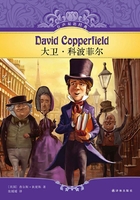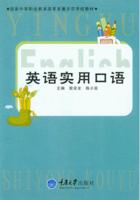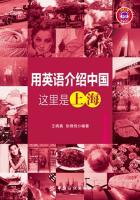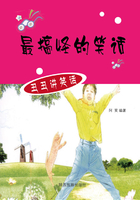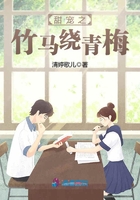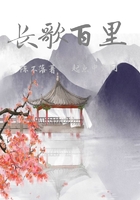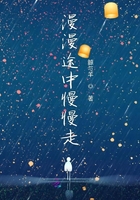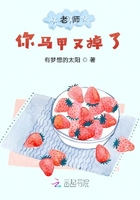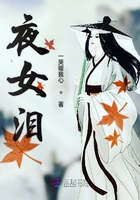A good book is often the best urn of a life enshrining the best that life could think out; for the world of a man' s life is, for the most part, but the world of his thoughts. Thus the best books are treasuries of good words, the golden thoughts, which, remembered and cherished, become our constant companions and comforters.
Books possess an essence of immortality . They are by far the most lasting products of human effort. Temples and statues decay, but books survive. Time is of no account with great thoughts, which are as fresh today as when they first passed through their author' s minds, ages ago. What was then said and thought still speaks to us as vividly as ever from the printed page. The only effect of time has been to sift out the bad products; for nothing in literature can long survive but what is really good.
Books introduce us into the best society, they bring us into the presence of the greatest minds that have ever live. We hear what they said and did; we see them as if they were really alive; we sympathize with them, enjoy with them, grieve with them; their experience becomes ours, and we feel as if we were in a measure actors with them in the scenes which they describe.
读其书,如同读其人;同样,观其朋友,也如同观其人。书如同人,都可成为伴侣;无论以书为友还是以人为伴,每个人都应有自己的知己。
一本好书可以成为我们最好的朋友。昨天如此,今天亦如此,这一点亘古不变。书是我们最有耐心和最使人愉悦的朋友。无论身处逆境,还是遭遇苦难,它都不会背弃我们。它总是怀着善意接纳我们,年轻时,它给予我们快乐并指引我们;年老时,它给予我们心灵的慰藉并鼓励我们。
因为对一本书的热爱,我们发现彼此之间的亲密无间。书是更为真实和高雅的联系纽带。人们通过自己最喜爱的作者,交流思想,产生心灵的共鸣。他们与作者同在,作者也与他们同在。
一本好书通常是记载生命的最好的瓮,它蕴藏着生命中思想的瑰宝,因为思想占据了生活的大部分。因此,最好的书是词汇之佳句,思想之瑰宝,最值得去怀念,去珍藏,是我们永远的伴侣和慰藉者。
书是永恒不朽的。它是迄今为止人类不懈奋斗的珍宝。庙宇和雕像可以被毁,而书却永存。无论何时,那些伟大的思想,都永远鲜活,如同首次浮上作者的心头。当时的言谈思想,透过书页仍然与我们交谈,而这一切就如同在我们的眼前。劣质的东西将被淘ì,这是时间的唯一功能,因为只有真正优秀的东西,才能在文学中永存。
书指引我们迈入最优秀的领域,它把我们带到历史上所有伟大人物面前。我们倾听他们的言语与举止,看到他们,如同看见一个鲜活的生命。我们与它产生共鸣,与它同享快乐,与它同享悲伤。我们历它所曾遭遇的,我们如同演员在它描绘的舞台上演戏。
谈怕死
On the Fear of Death
威廉·哈兹里特 / William Hazlitt
威廉·哈兹里特(1778-1830),英国散文家、评论家、?家。他曾从事过绘?,但是在柯尔雷基的鼓励下写出《论人的行为准则》,随后又写了更多的散文作品。1812年在伦敦当记者,并为《爱丁堡评论》撰稿。从其作品来看,他热衷争论,擅长撰写警句,谩骂和讽刺性的文字。他最著名的散文集是《席间闲谈》和《时代精神》。
Perhaps the best cure for the fear of death is to reflect that life has a beginning as well as an end. There was a time when we were not: this gives me no concern.
Why then should it trouble us that a time will come when we shall cease to be? I have no wish to have been alive a hundred years ago, or in the reign of Queen Anne. Why should I regret and lay it so much to heart that I shall not be alive a hundred years hence, in the reign of I cannot tell whom?
To die is only to be as we were born; yet no one feels any remorse, or regret, or repugnance, in contemplating this last idea. It is rather a relief and disburthening of the mind; it seems to have been a holiday time with us then: we were not called to appear upon the stage of life, to wear robes or tatters, to laugh or cry, be hooted or applauded; we had lain perdu all this while, snug out of harm' s way; and had slept out our thousands of centuries without wanting to be waked up; at peace and free from care, in a long nonage, in a sleep deeper and calmer than that of infancy, wrapped in the softest and finest dust. And the worst that we dread is, after a short fretful, feverish being, after vain hopes, and idle fears, to sink to final repose again, and forget the troubled dream of life!
也许摆脱死亡恐惧的最佳疗法是思考生命的开始与终结。曾我们对此没有给予关注。
为什么走到生命的尽头时,这个问题却会困扰我们?我不希望生活在一百年前,或者安妮女王时代,为什么还要为未能生活在一百年前,说不出是?的统治时代而感到遗憾?
死亡就像我们的出生。思考这一永恒的主题,无人会自责、悔恨,或质疑,相反我们可以释放心灵,缓解忧愁。我们仿佛在度假一般:我们没有被传唤至人生的舞台上,穿着华丽的衣服或破旧的衣衫,大笑不止或痛哭流涕,被人训斥或者赞美,然而对此,我们却隐藏了许久,安详悠闲,而远离伤害。我们仿佛沉睡了千百个世纪而不愿被人唤醒,安逸而无忧虑,总处于孩童时期,而且比婴儿睡得还要深沉,还要平静,被裹挟于最轻柔、最细密的灰尘之中。我们最怕的是过瞬间的狂热、徒劳的希望、没有缘由的恐惧,又沉浸到熟睡状态,而忘记生命中困扰我们的梦想!
论出游
On Going a Journey
威廉·哈兹里特 / William Hazlitt
One of the pleasantest things in the world is going a journey; but I like to go by myself. I can enjoy society in a room; but out of doors, nature is company enough for me. I am then never less alone than when alone.
"The fields his study, nature was his book."
I cannot see the wit of walking and talking at the same time. When I am in the country I wish to vegetate like the country. I am not for criticizing hedge-rows and black cattle. I go out of town in order to forget the town and all that is in it. There are those who for this purpose go to watering-places, and carry the metropolis with them. I like more elbowroom and fewer incumbrance. I like solitude, when I give myself up to it, for the sake of solitude; nor do I ask for "a friend in my retreat, Whom I may whisper solitude is sweet."

